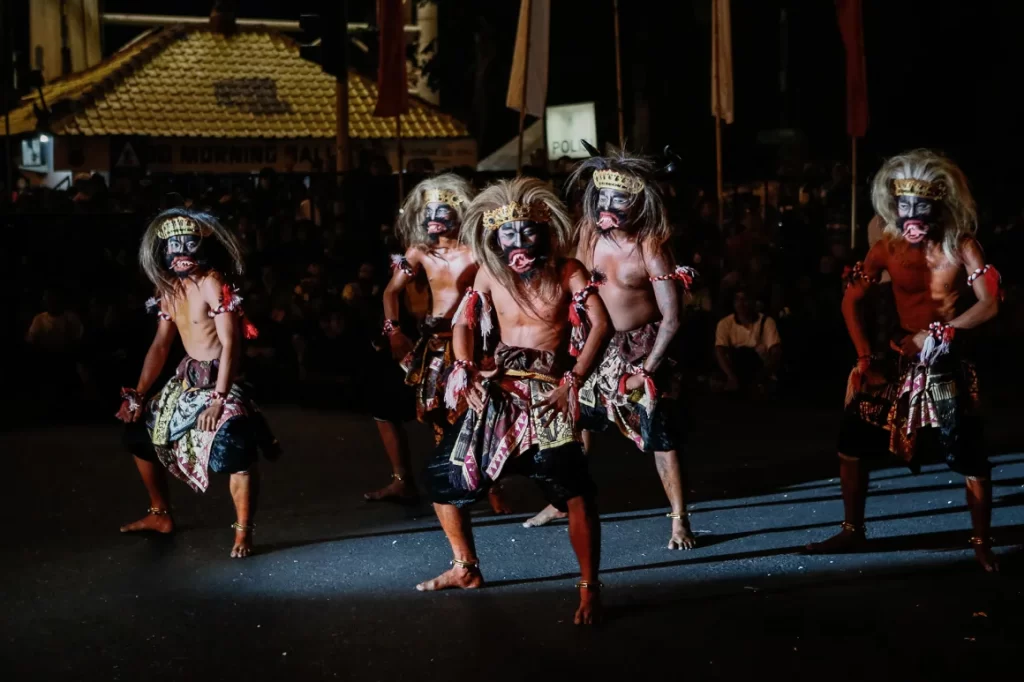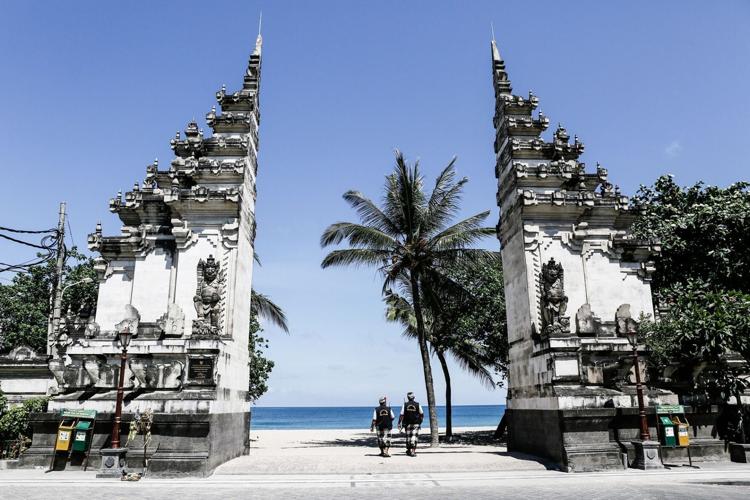News
Embarking on a Silent Journey: Unveiling the Mystique of Nyepi in Bali
Nestled amid the azure waters of the Indonesian archipelago, Bali stands as an epitome of tropical paradise and cultural richness. Renowned as one of the world’s most sought-after vacation destinations, Bali pulsates with life – streets reverberate with the hum of motorbikes, and the air is infused with the joyous melodies pouring out of local cafes. However, there exists a day when this vibrant island undergoes a profound transformation, a day when it surrenders to silence – Nyepi, Balinese New Year. Let’s find out with nowglas.

In stark contrast to many cultures worldwide, where the advent of the new year is heralded by fireworks, extravagant parties, and exuberant celebrations, Balinese Hindus opt for a unique observance – silence. Nyepi, a 24-hour period commencing at 6 a.m., beckons the inhabitants of Bali to retreat into introspection, fasting, and meditation. The island becomes enveloped in a profound hush, with electricity switched off, and families finding solace in each other’s company. Pecalang, local security officers, diligently patrol the streets, ensuring strict adherence to the day of silence. The usual cacophony of cars is replaced by the occasional ambulance, a reminder of life’s essential services.
Amanda Syrowatka, the owner of Viceroy Bali, adeptly manages the expectations of hotel guests during Nyepi. She accentuates the days leading up to Balinese New Year as a unique period filled with special rituals that offer visitors an authentic glimpse into the island’s cultural tapestry.
Nyepi unfolds on the Balinese calendar, a meticulously crafted 210-day cycle, with the day following the new moon of the 10th lunar month designated for this solemn observance. Ngrupuk, the day preceding Nyepi, witnesses the procession of colossal monster effigies, known as ogoh ogoh, symbolizing evil spirits. These intricately crafted effigies, painstakingly made from papier-mâché, undergo symbolic immolation after the parade, signifying the purification of the island.

Professor Wayan Ari, academic director of the School for International Training and a Bali native, delves into the deeper significance of Nyepi. Beyond the surface-level observance of silence, Nyepi serves as a day of self-introspection, prompting individuals to reflect on fundamental values such as humanity, love, patience, and kindness.
Ngrupuk, preceding Nyepi, acts as a cathartic release for locals. Traditional rituals involve visiting homes with torches, creating loud noises, and performing symbolic acts to cleanse and purify living spaces. This day allows the Balinese to indulge in noise-making activities before embracing the silence and introspection that Nyepi demands.
In a predominantly Muslim Indonesia, Bali stands as a Hindu-majority exception, with its unique brand of Balinese Hinduism. Unlike mainstream Hindu celebrations like Holi and Diwali, Nyepi takes precedence, showcasing the distinctive spiritual fabric of Bali.
For visitors, Nyepi unfolds as a captivating, albeit silent, experience. Jero Mangku Tindih, the resort manager at Viceroy Bali and a native of the island, seizes the opportunity to educate guests about Balinese culture. Collaborating with Syrowatka, Tindih orchestrates an annual special Nyepi package, inviting guests to immerse themselves in the island’s cultural observances.
Guests are encouraged to participate in the Ngrupuk celebrations in a nearby village, where they can witness the vibrant ogoh ogoh parade and the dramatic fire war – a ritual where locals ignite and toss flaming coconut husks. The Viceroy’s website, with Nyepi clearly blocked off from its booking calendar, provides essential information for tourists, acknowledging the restrictions imposed during this sacred time and respecting the cultural practices.
During Nyepi, visitors find themselves confined to their accommodations. Those seeking a more profound connection with the local experience can choose to forgo electronic devices, embracing a day of simplicity and cultural immersion. Viceroy ensures that essential amenities such as meals, the pool, spa, and gym remain available for guests. The Wi-Fi remains operational, recognizing the diverse backgrounds and beliefs of the guests.

While Nyepi may not be a planned highlight for some tourists, the unexpected encounter with this day of silence can be transformative. Margot Bigg, an American freelance writer, discovered herself in Bali during Nyepi in 2019. Although she had not planned her trip around the holiday, her Ubud hotel reached out, elucidating the significance of Nyepi and the regulations surrounding it.
Reflecting on her experience, Bigg expresses admiration for the beautiful tradition of Nyepi and its potential benefits for spiritual and mental well-being. Nyepi, with its unique blend of introspection and cultural richness, transcends mere silence to offer visitors a profound and meaningful connection with the heart of Bali. It serves as a testament to the island’s spiritual depth and cultural resilience, inviting all who experience it to embark on a silent journey of self-discovery and cultural immersion.
See more: Strictly Star Nikita Kanda Assaulted in Terrifying Street Attack
